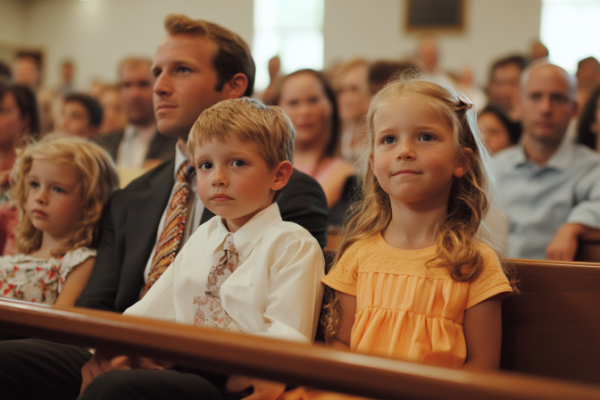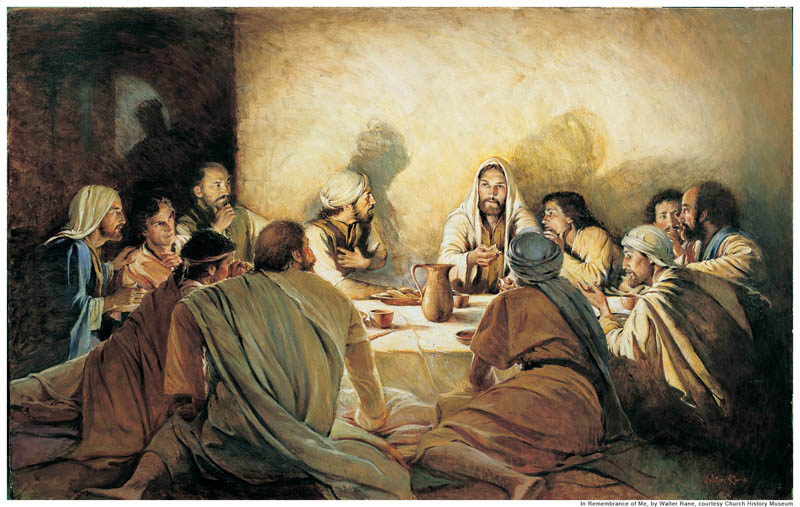Question
Gramps,
Is it appropriate for a member of the Bishopric to ask parents to take their children out while the sacrament is being passed?
Philip
Answer
Philip,
Church leaders, particularly Bishops, play a pivotal role in ensuring that sacrament meetings remain sacred and reverent. The sacrament is a time for reflection, remembrance of Christ’s atonement, and spiritual communion, requiring an atmosphere conducive to prayer and contemplation. Everyone who attends the meeting should be reverent during the entire ordinance of blessing and passing the sacrament.
When disruptions occur, such as children throwing tantrums or making noise, the Bishop must decide the most appropriate course of action. In some instances, this may involve asking parents to remove their children to restore order and maintain the meeting’s reverent atmosphere. However, there is a balance to be struck between discipline and compassion.
The Bishop’s approach should consider the individual circumstances and the potential for teaching moments. Rather than an immediate interruption, gentle reminders or quiet interventions can sometimes effectively manage disruptions without drawing undue attention. This method aligns with the church’s family-oriented ethos, emphasizing patience, understanding, and the nurturing of children’s spiritual growth within the community setting.
The Church of Jesus Christ of Latter-day Saints prides itself on being a welcoming, family-centered faith. Children are integral members of the congregation, even if they are not yet baptized. Their presence enriches sacrament meetings, bringing energy and reminding adults of the importance of nurturing faith from a young age. However, the presence of children can sometimes challenge the serene environment necessary for worship.
The issue of noisy children during sacrament meetings raises important questions about inclusivity and respect. Removing children from the meeting might restore order, but it could also send a message that their presence is not valued. Conversely, allowing uninterrupted disruptions can detract from the worship experience for other members. The Bishop’s role, therefore, involves finding a harmonious balance that honors both the importance of reverence and the inclusion of families.
Scriptural guidance offers insight into this balance. Jesus Christ counseled, “Suffer the little ones to come unto me, and forbid them not.” This directive emphasizes the importance of welcoming children and recognizing their role in the faith community. Encouraging children to participate respectfully in meetings fosters an environment where they can learn and grow spiritually alongside adults.
Effective management of children’s behavior in sacrament meetings requires proactive strategies from both parents and church leaders. Here are several approaches that can help maintain reverence while respecting the presence of children:
- Preparation and Communication: Before meetings, parents can discuss the importance of reverence with their children, setting clear expectations for behavior. Explaining the significance of the sacrament and the reasons for maintaining a quiet atmosphere can help children understand their role.
- Engaging Activities: Providing quiet activities, such as coloring books or simple crafts, can keep children occupied without disrupting the meeting. Some families bring themed activity packets related to the sacrament, helping children feel connected to the proceedings.
- Positive Reinforcement: Acknowledging and rewarding good behavior encourages children to act respectfully. Simple praise or small incentives can motivate children to adhere to the desired behavior during meetings.
- Responsive Leadership: Bishops and church leaders can implement guidelines that support families in managing children’s behavior. This might include designated areas for children, clear policies on disruptions, and resources for parents seeking additional support.
- Building Congregational Support: Fostering a community where members support one another in managing children can alleviate pressure on individual families. Sharing strategies and offering assistance can create a more cohesive and respectful worship environment.
By implementing these strategies, both parents and church leaders can contribute to a sacrament meeting atmosphere that is both reverent and inclusive, allowing families to worship together harmoniously.
Maintaining reverence in sacrament meetings is a collective responsibility. Congregation members can play an active role by modeling respectful behavior, offering understanding and patience towards children, and supporting families in their efforts to create a conducive worship environment. Encouraging empathy and compassion within the congregation fosters a sense of unity and shared purpose, reinforcing the sacredness of sacrament meetings.
Furthermore, providing educational resources and workshops on managing children’s behavior in religious settings can empower parents with effective tools and strategies. Collaborating with church leaders to address common challenges ensures that solutions are consistent with church teachings and values.
Gramps







